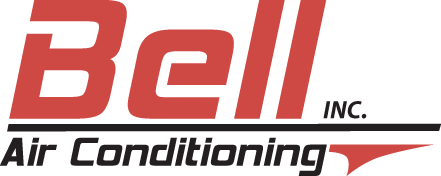
Purchasing your first home is thrilling. You’re likely juggling a dozen things or more about making the right choice. We believe that understanding your potential new HVAC system is essential. The property’s HVAC system represents a substantial investment and source of potential long-term costs, so being thorough should be a top priority for first-time homebuyers.
In this guide, we’ll outline seven tips for discovering all there is to know about a home’s heating and cooling system. And if you want a deeper opinion from the experts, feel free to call Bell Air Conditioning Inc. Our seasoned technicians can help you compare your options with industry insights that are second to none.
1. What HVAC System Are You Working With?
Start by determining what kind of HVAC system the home includes. Furnaces generally last longer than air conditioners, and relatively new types of HVAC products like heat pumps can offer average life spans that are impressively long. Knowing the make and specific model gives you a clear understanding of how much routine maintenance it might need.
2. What Is the Current System’s Age?
It’s just as smart to learn how old the HVAC system is when you're looking at a new home. In general, HVAC systems tend to run for about 10-12 years. Learning its approximate installation date helps you anticipate future maintenance needs or considerations if it might eventually stop working. Older systems are more prone to problems, so budgeting for a replacement unit could be necessary sooner than you thought.
3. Is the Warranty Active?
Check if the HVAC system is still under warranty. If it is, this can lower maintenance costs. HVAC warranties often cover parts and labor, but the details in each policy will vary. Make sure you go over any terms you don’t recognize to ensure you understand your coverage and any possible out-of-pocket costs.
4. Does the System Have a Documented Maintenance History?
Take a close look at the maintenance history of the HVAC system, if the records are available. This service history can reveal if the system constantly broke down or how often maintenance is performed. You should at least try to track down a history of key tasks like filter changes, which can indicate it received regularly scheduled tune-ups.
5. Are You Aware of the System’s Energy Efficiency Ratings?
Purchasing a home with a heating and cooling system with high energy efficiency can lead to smaller utility bills and a smaller environmental impact. Look for the seasonal energy efficiency ratio (SEER) ratings for air conditioning along with the annual fuel utilization efficiency (AFUE) for furnaces. Higher SEER ratings mean better cooling across the entire season, while higher AFUE ratings mean the fuel is more effectively burned for useable heat.
6. Did You See Any Problems After Completing an Informal Inspection?
Even if you don’t have the know-how of an HVAC technician, it's still a good idea to examine the HVAC system on your own. Look for signs of problems that haven't been mentioned by the seller. This might consist of odd sounds, stubborn patches of the house that are too hot or cold and attempts to hide any visible damage.
7. Have You Asked Your Local HVAC Professional?
If you're not quite sure about the current state of the HVAC system, it's beneficial to get an assessment and recommendation from trained HVAC professionals. They can spot things you may not know about, including leaking coolant, bad electrical connections or flawed ductwork.
A Consultation with Bell Air Conditioning Inc Simplifies Your Home-Buying Journey
Finding your first home is meant to be a joyful event, and Bell Air Conditioning Inc will do everything possible to ensure yours is too. Get in touch with us at 254-307-9572. We can discuss how our HVAC services give you peace of mind, giving you what you need to dive into home-ownership with confidence.
